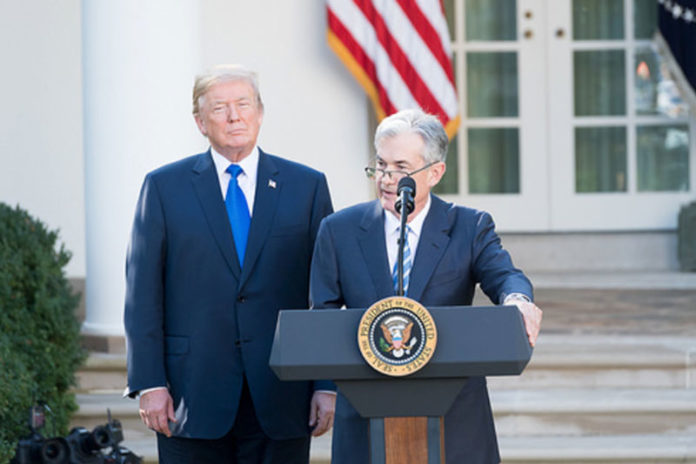President Trump announced plans to nominate Jerome Powell as the chairman of the Federal Reserve, while replacing the sitting chair Janet Yellen on Thursday.
Powell is the sitting member of the Board of Governors of the Federal Reserve and is a voting member of the Federal Open Market Committee, which is the policy-making arm for the central bank that makes the decisions about the monetary policy. Before coming to the Feds, Powell served as an assistant secretary and undersecretary of the Treasury under former President George H.W. Bush.
It was unclear if the current Fed chair Janet Yellen, whose term expires in February 2018, would be asked to serve another term. President Trump had several times criticized her performance on the campaign trail, saying that the Fed’s keeping interest rates near zero further helped the Obama administration.
Representative Sean Duffy asked Yellen in July if she was seeking to serve another term at her office to which Yellen replied that she intends to serve out her term.
Duffy, who has introduced a new podcast called the Plaidcast, talked about the Powell’s nomination and current Fed policy with the Representative Bill Huizenga, who chairs the House Financial Services Capital Markets Subcommittee.
On the podcast, Duffy asked Huizenga if Janet Yellen should leave her post as chair of the Federal Reserve.
“I think that there are better options,” Huizenga said.
In regards to reforming the Fed, the congressman said that to improve the health of the economy, market forces should also drive interest rates and monetary policy.
“We don’t have true market forces, and whether you agree or disagree about the Fed’s interference into interest rates through monetary policy, through the quantitative easing program, which was literally when the U.S. government was offering to sell bonds, nobody was buying them,” Huizenga said. “So the Fed bought them from Treasury, and they pretended like that was a free market exchange. Well, it really wasn’t, and Japan has now done that, Europe has now done this, we’ve artificially driven down interest rates.”
“Again, you can argue both ways as to whether it was a good thing, bad thing,” Huizenga added. “What most people are saying is, hey, we’ve been at this now for eight years, nine years, it’s time that we allow market forces back into it.”
“Predictability is a big thing that I hear a lot,” said the Michigan congressman. “You had the federal government changing the rules all the time and it was mostly because of the political pressure and so you had business owners, large, medium, and small business owners all kind of sitting on the sidelines saying, ‘You know what? We’re not sure what’s going to happen with our health care, we’re not sure what’s going to happen with the regulatory environment, we’re not sure what’s going to happen with our taxes.'”
Huizenga said that a lot of these people decided to sit on the sidelines because of the uncertainty as they were afraid that they may get burned like they did in 2009 and 2010.
“We have successfully, I believe, rolled back a number of those regulations,” Huizenga said. “We’ve got to deal with tax reform to lend some predictability and lower that overall corporate tax rate and maybe more importantly that pass-through rate for small businesses.”
Duffy agreed, saying people do what they do best, which included investing and running their own businesses, when red tape is streamlined, taxes are also reduced, and the Fed gets out of the way.






























